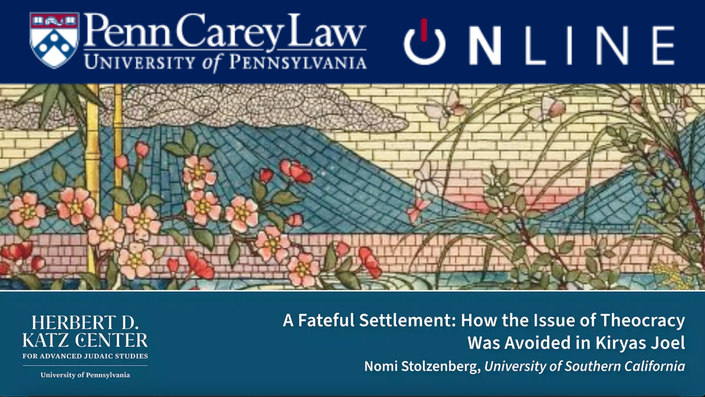
A Fateful Settlement: How the Issue of Theocracy Was Avoided in Kiryas Joel
1.0 Substantive credits
A Fateful Settlement: How the Issue of Theocracy Was Avoided in Kiryas Joel
In the Satmar Village of Kiryas Joel, dissidents claimed that village officials exercise the powers of government in furtherance of religious law, in violation of both the American constitutional principle of separation between religion and state and the Satmar belief that Jews must separate themselves from worldly affairs. A judge appeared receptive to the argument that the village operates as a theocracy—until the dissidents agreed to settle out of court. That agreement, which included a strict provision obligating the parties to submit all future disputes to rabbinic rather than secular courts, quickly broke down. Yet because of the settlement, new suits alleging the village is a theocracy have never been allowed to go forward, leaving the issue unresolved.
About the “Jewish Law and the Constitution” Series
The familiar talmudic statement dina de-malkhuta dina (the law of the kingdom is the law) doesn’t even begin to cover the complex relationship between Judaism and state law. This series will draw out some signal characteristics of that relationship as it has evolved and unfolded in the orbit of American constitutional law. Each talk highlights one arena in which the legal system has been drawn into conversation with Jewish life and vice versa. Case by case, they tell stories of religion and politics, democracy and minorities, theory and practice: law entangled with law.
Your Instructor

